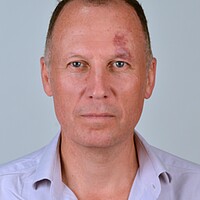Can Pope Francis convince Castro to soften his reign?
| Havana
It is the longest, and most anticipated, journey of his papacy so far.
Nine months after secretly helping to broker the historic rapprochement between Washington and Havana, Pope Francis is in Cuba for a four-day visit that will precede his five-day tour of the United States.
Expectations are running high for this leg of the trip, as Cubans look to the first pope from the Americas to persuade President Raul Castro to bring their country out of its long isolation – and end the decades of harassment, persecution, and imprisonment that dissidents have suffered under the Castro regime.
But experts say that the pope's ability to effect change is limited. While they argue that his moral legitimacy means that anything he says about democracy and reform will have an impact, it is likely to be slow to manifest.
The Holy See is being careful to manage expectations. The country's human rights situation is still grim, according to Human Rights Watch in its latest report on Cuba.
“The Cuban government continues to repress dissent and discourage public criticism,” the human rights group reported. “While in recent years it has relied less on long-term prison sentences to punish its critics, short-term arbitrary arrests of human rights defenders, independent journalists, and other critics have increased dramatically."
The government did release 3,522 prisoners last week in what was seen as a conciliatory gesture, but they did not include any of the 60 political prisoners that the dissident Cuban Commission of Human Rights and National Reconciliation says are in jail.
“Raul has been very astute at creating an image of himself as a reformer by making some openings in the economy, but the reforms are very minor and have not changed the absolute control that the government has over the economy,” says Sebastian Arcos, a former political prisoner who fled Cuba for Florida 22 years ago. He is now the associate director of the Cuban Research Institute at Florida International University in Miami.
Reaching out to dissidents
The pope began to press Castro in a Saturday evening address he delivered to Raul Castro and assembled dignitaries on the tarmac of Havana’s international airport. In an apparent reference to dissidents within Cuba and Cuban exiles in the US, he said he regretted that there were “those who, for various reasons, I will not be able to meet.”
Two well-known dissidents, Marta Beatriz Roque and Miriam Leiva, had been invited by the Vatican to attend a vespers service led by the pope in Havana’s historic cathedral. But they said they were detained by security agents and barred from attending the event.
Ms. Roque and Ms. Leiva said they had also been invited by the Vatican to meet Pope Francis at the residence of the Holy See’s ambassador to Cuba shortly after the pontiff's arrival, but that they were detained on that occasion as well.
Still, optimists say that the church has been able to change Cuba before. They point to the two previous papal visits of John Paul II in 1998, and Benedict XVI in 2012, both of which helped to open up broader freedoms for the Catholic Church in Cuba, which had been driven underground in the years following the revolution of 1959.
“The pope is providing a safe space in which this reconciliation can take place,” says Austen Ivereigh, an expert on the Catholic Church in Latin America.
'Abuses likely to continue'
But Mr. Arcos thinks the trip will make no difference to what he calls the “appalling lack of freedoms” in Cuba.
“Cubans hoping for more reform and democracy will be disappointed,” he says. “Castro will be hoping that some of the Francis magic rubs off on him. My fear is that the visit will add to the political legitimacy of the regime.”
The government's abuses are likely to continue, says Greg Weeks, a political scientist at the University of North Carolina at Charlotte.
“Likely outcome [of the visit]: the pope has a message that is mostly religious rather than political. He talks about human rights but downplays direct criticism of the Cuban government. Overall, he has something to say that gets under the skin of just about everyone but not in a way that sparks rapid change,” wrote Weeks in a recent blog post.
Still, Ivereigh believes the pope wants to nudge Cuba down the right path.
“He’s coming to Cuba to heal historical divisions and to build bridges,” he says. “The Florida Straits are to this pontiff what the Berlin Wall was to John Paul II – not just a physical barrier, but a barrier of suspicion and mistrust. Francis has an important role to play here.”






